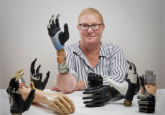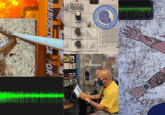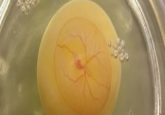Thinking outside: maintaining balance in STEM
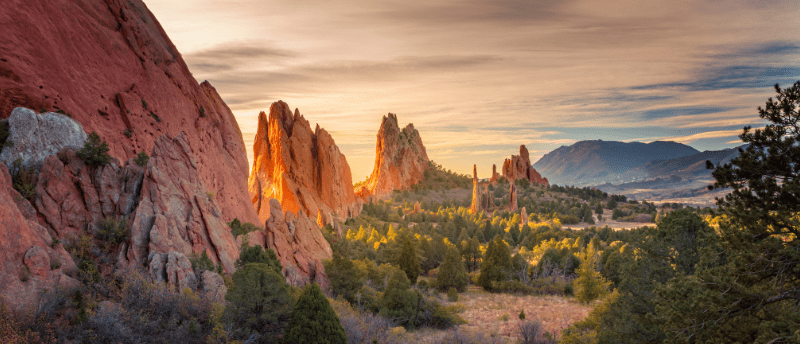
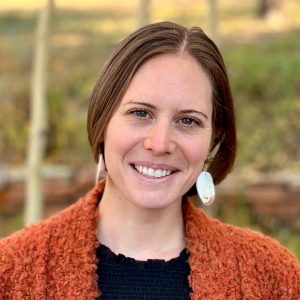
Kelsey Loupy (left) was one of our 2022 Future Star Award finalists. We caught up with her this International Women’s Day to hear more about her work, outreach initiatives and personal thoughts on what it means to be a woman in science.
Kelsey began her journey in science at California Polytechnic State University (CA, USA) studying biology. From there, she pursued a master’s degree and PhD in neurodegenerative diseases and psychiatric disorders at the University of Colorado Boulder (CO, USA). Kelsey has since worked in industry, leading neuroscience campaigns to discover novel biomarkers and predict clinical diseases. She supports continuing education in the field of clinical psychology, and she is passionate about her involvement in outreach initiatives teaching neuroscience and promoting lifestyle changes to improve mental wellbeing.
In this interview, Kelsey highlights the importance of rest, recreation and outdoor interests for maintaining healthy relationships with friends, family and work.
How have you found mentors throughout your career? What have you gained from these relationships?
I’ve found that mentors do not need to be in the same field that I’m in. I have scientific mentors, spiritual mentors, entrepreneurship mentors, etc. Diversifying mentors means that not just one or two people teach you everything, but each teach you different concepts, talents and knowledge that they have mastered. My mentors are individuals that I look up to and have skills that I want to develop. But because I don’t require a single mentor to be in one field or to teach me everything, it’s easy to find mentors everywhere!
I think it’s also important to honor the relationship we have with ourselves. I’ve often had to rely on myself to navigate new and uncomfortable situations or confusing decisions. I’m learning to trust myself, my gut and my ability to problem solve. So often we look externally for validation and perhaps there is a lesson in listening to our inner wisdom for guidance.
What resources/networks have you found useful in your career, particularly as a woman in science?
I have gathered a circle of women friends whom I lean on and learn from. We share our stories with each other and encourage each other to boost confidence, go after what we want and pave our own paths in our careers. These women are mirrors for me; as we connect and relate in our desires, our drive to succeed or make a difference, our obstacles and our shared experiences as women, I am shown what I am capable of. As we build structures of support by lifting each other up, we can begin to know ourselves more deeply, empowering us to discover our unique talents and find meaning in our careers.
I have also found that pursuing passions outside of my career helps me to maintain a healthy work–life balance. For me, these interests have included connecting with nature, pursuing knowledge or a new skill and committing to an extracurricular or hobby. Setting goals and finding purpose that doesn’t revolve around the workplace is refreshing, resourcing me with energy and a clear mind and providing me with creative perspectives that I can then bring back to the office.
What are you most proud of in your career?
I’m proud of the breadth of work I’ve accomplished: research in neurodegenerative disease and mental health, efforts for educational diversity, inclusion and outreach. I’m also proud of my capacity to balance work and life. I’ve made time for relationships, outdoor adventuring, athletic training, learning and personal growth. I think supporting time off and mental health days should be the norm. We know from research that time off is essential for productivity. We’ve also found links between nature connectedness and mental health. I feel so much more wholeness in my life and drive within my career when I allow myself to take breaks. I believe we would all experience the benefits it brings both in and out of work and what can be accomplished when we live in this greater equilibrium.
Why is the concept of balance so important for women in science?
In my experience, many women find themselves in a position where taking care of themselves has gone to the bottom of the priority list. I think if we take time to rest and nourish ourselves, then we reclaim a greater capacity to show up for ourselves and for others. Resting looks different for every woman; for me, sometimes resting is going on a rafting trip. When we are rested and nurtured, we can more effectively hold and accomplish the many moving parts of life: relationships with yourself, family and career.
How do your outreach initiatives influence your work and vice versa?
Outreach initiatives have allowed me to connect directly with people of all ages and backgrounds. I was inspired to get involved in outreach because I felt that many community members were seeking answers to improve their wellbeing. Because I work in healthcare and mental wellness, I believe it’s important to have a conversation with the people I am doing my research/work for. To me these relationships matter, enhancing the work I do and what we can accomplish together. Outreach provides feedback and I obtain a better understanding of what people already know to be true for themselves, what they are interested in and what makes an impact in their personal lives.
Do you have any advice for your younger self when it comes to studying biology/neuroscience or working in industry?
Follow your intuition and do what makes you feel good (i.e., vibrant, fulfilled).
There are opportunities that I wanted to pursue but didn’t because I made excuses – either money, time or insecurities – and there are opportunities I sought out because I thought that “I should” or that it would “look good” even though I didn’t find joy in them. I wish someone had told me that my career doesn’t have to look a certain way for me to be successful.
Here’s your opportunity to shoutout anyone who has inspired or helped you along the way!
Shoutout to so many of my best girlfriends in different industries, thinking outside the box and paving the way for themselves to grow and lead others. Female scientists, such as Christy Strand (California Polytechnic State University) and Nicole Speer (University of Colorado Boulder), who encouraged my early research and outreach efforts. My wonderful partner and teammate, Mathew Arnold (University of Colorado Boulder), who is my biggest advocate. My grandmothers, mom and sister for being my lifelong teachers.
